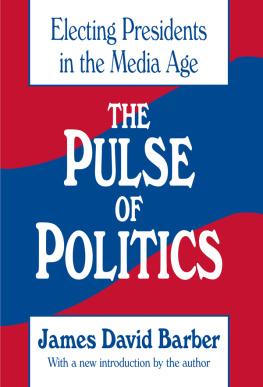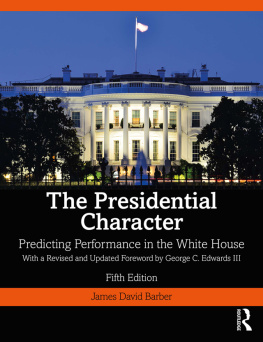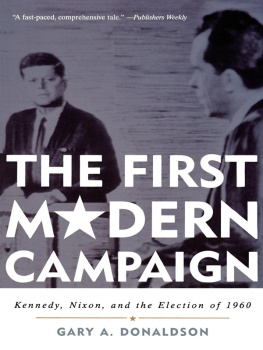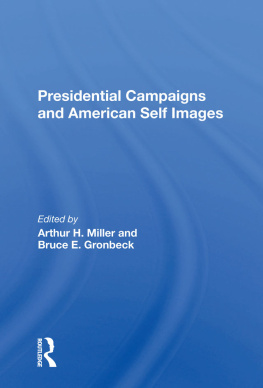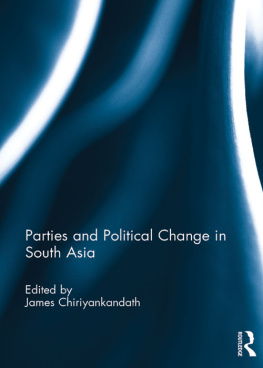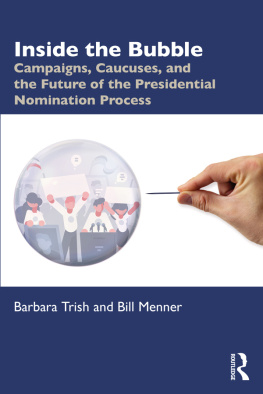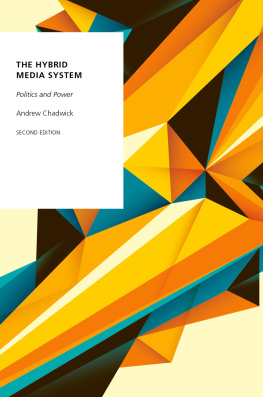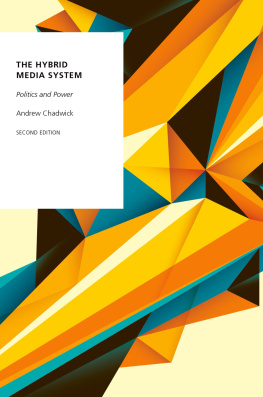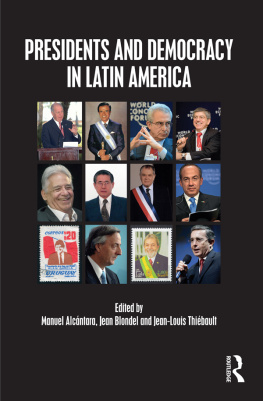THE P ULSE OF P OLITICS
Originally published in 1980 by W. W. Norton & Co.
Published 1992 by Transaction Publishers
Published 2017 by Routledge
2 Park Square, Milton Park, Abingdon, Oxon OX14 4RN
711 Third Avenue, New York, NY 10017, USA
Routledge is an imprint of the Taylor & Francis Group, an informa business
New material this edition copyright 1992 by Taylor & Francis.
All rights reserved. No part of this book may be reprinted or reproduced or utilised in any form or by any electronic, mechanical, or other means, now known or hereafter invented, including photocopying and recording, or in any information storage or retrieval system, without permission in writing from the publishers.
Notice:
Product or corporate names may be trademarks or registered trademarks, and are used only for identification and explanation without intent to infringe.
Library of Congress Catalog Number: 91-45149
Library of Congress Cataloging-in-Publication Data
Barber, James David.
The pulse of politics: electing presidents in the media age/James David
Barber; with a new introduction by the author.
p. cm
Originally published: New York: Norton, 1980.
Includes bibliographical references and index.
ISBN 1-56000-589-0
1. PresidentsUnited StatesElection. 2. United StatesPolitics and
government20th century. I. Title.
JK524.B37 1992
324.973920
9145149
CIP
ISBN 13: 978-1-56000-589-6 (pbk)
TO AMANDA JOAN MACKAY SMITH
Reporting politics is an arm of democracy. Think about it: if we are to have government by consent of the governed, the consent has to be reasoned. And reason for politics is reason about the reality of our society, a reality ranging from how things are working in our neighborhood, on out to how things are working around the world. Yes, we need logic. Yes, we need principles. But we live down here on the earth, so we also need the mundane informationrelevant to our causeabout the actual events and conditions that shape up and are shaped out by politics itself.
That is why the profession of journalism counts high. From the start of democracy over the past few centuries, finding the news and conveying it to citizens made a great deal of difference to the success of transforming the decisions from the few inside aristocrats to the masses of outside humans. No wonder then that Jefferson had his newspaper and Adams had his, as they stepped out to compete to get votes for the Presidency. No wonder that Congress and the courts learned from the start that they had better go ahead and read the newspaper before they made their decisions. And today, more so than then, anyone dealing with politicsas all of us shouldhad better catch onto the news to make the deal a real one.
The news of the day is important, but so is the news of yesterday. To understand politics, we need to understand its birth, its childhood, its youth, and its adulthood, as the actual democracy of today came to be. History can untangle the confusions of today, when we find out where they came from and where they might yet go. We need not be fooled by the jazzy, immediate impressions of today or the fuzzy anticipation of tomorrow. Knowing what has happened can help us make things happen better. The history of the United States, for example, clearly lays out before us the significance of the Presidency. And it less clearly but just as importantly lays out an understanding of Presidential elections. The pages to follow, leaning hard upon the evidence available, shows a surprise: that Presidential elections in the United States have been dominated by just a few main themes, time and time again. That makes it likely that on into the future, the same main themes will show up and shape up the nature of our Presidential elections, despite the obvious relevance of brand new novelties. So the history of politics, fun as it is to know about, is also useful for our judgments.
That is just as true for understanding journalism. The history of journalism is coming forth more and more, adding a major dimension to the background of democracy. And as with politics, understanding the rhythms and risings of journalism in the past can help us to see what we need most today and project how it might be made even better in the future. Journalism changes. Not long ago, for example, television news meant one stations news for each of our communities, so that for half an hour of the evening, one expression of news was the one thing we could see on our screen. Now we can tune in at least several different network news programs at the same timeand at different times. And if we want to ignore the news, we can watch a video tape on our VCR or play Nintendo. That news was, for a time, a monopoly; now it is a choice. And so had been the news of print and the news of radio. The challenge to journalists to win the mules attention is high up and far out.
In Presidential politics it is crucial that the news be done right. The best ambition of journalism, as I see, is to make reality interesting. Both reality and interest are necessary, together. If the news is an uninteresting reality, forget it; that news waps off into the sky, on to outer space, far beyond reaching the human mind. On the other hand, news made interesting by being unreal, as in warping and faking and feeling aside the truth, is a neurotic danger politics can best do without. All of us are tempted to escape from the awkward, depressing, confusing, and frightening things actually happening out there in the world. But the consent of the governed takes courage, the courage of voters to face straight up to the real stuff and make it change the way we want.
The elections this nation has experienced in this century, spelled out in the pages to come, are fascinating examples of how political choices are done, for better and for worse. The proof is there that journalism makes a major impact on the outcomes. So the reporting of politics is worth our try to get it straight. Political science, tried here, is our way of taking on hypotheses, of meaning to the life of humans, and testing them with real life evidence. May that happen to you as you read on to check out the pulse of politics.
James David Barber
The Presidential Beat
E VERY FOUR YEARS a gong goes off and a new Presidential campaign surges into the national consciousness: new candidates, new issues, a new season of surprises. But underlying the syncopations of change there is a steady, recurrent rhythm from election to election, a pulse of politics, that brings up the same basic themes in order, over and over again. If the rhythm holds for the future, the dominant theme of the next election is already being formed in this one, and will in turn set the theme for the one after that. Understanding how this cycle works is the key to bucking it, to breaking out of a pattern of drift and reaction in that most critical of all political choices, the choice of a President.
From the turn of the century to the present day, three themes have dominated successive campaign years: politics as conflict, politics as conscience, and politics as conciliation. That sequence runs its course over a twelve-year period and then starts over again.
The stress on conflict is the clearest case: the campaign is a battle for power. Like a real war, the political war is a rousing call to arms. Candidates mobilize their forces for showdowns and shoot-outs, blasting each other with rhetorical volleys. It is a risky adventure; its driving force is surprise, as the fortunes of combat deliver setbacks and breakthroughs contrary to the going expectation, and the. contenders struggle to recover and exploit the sudden changes. It is the myth of the fighting candidate. It is John Wayne galloping over the horizon at the head of the cavalry troop, just as the Indians are about to descend on the settlement. It is Harry S Truman battling through to victory against overwhelming odds.

